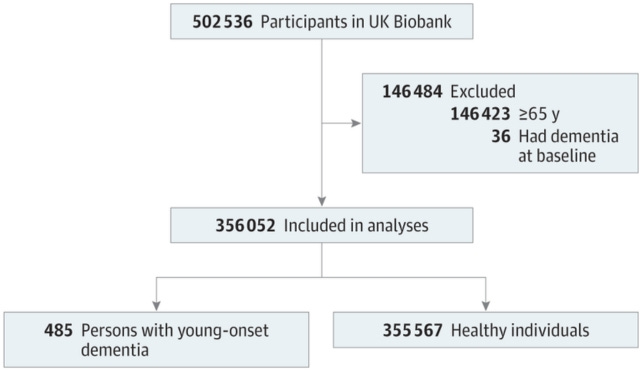Young-Onset Dementia Risk Factors: New Study Highlights Key Influences
While dementia is far more prevalent among older adults, hundreds of thousands of individuals are diagnosed with young-onset dementia (YOD) each year. A comprehensive study published in 2023 provides significant insights into the factors contributing to this condition.
New Insights Beyond Genetics
Most previous research has primarily focused on genetic predisposition passed down through generations. However, this latest study identifies 15 lifestyle and health factors associated with an increased risk of YOD.
"This is the largest and most robust study of its kind ever conducted," said epidemiologist David Llewellyn from the University of Exeter in the UK when the results were published in December 2023. "Excitingly, for the first time it reveals that we may be able to take action to reduce risk of this debilitating condition, through targeting a range of different factors."
The research team analyzed data from 356,052 individuals under the age of 65 in the UK, revealing key risk factors that extend beyond genetic inheritance.

Key Risk Factors Identified
The study highlights several modifiable and non-modifiable risk factors contributing to YOD. Low socioeconomic status, social isolation, hearing impairment, stroke, diabetes, heart disease, and depression were all associated with a heightened risk.
Vitamin D deficiency and elevated levels of C-reactive protein—produced by the liver in response to inflammation—were also linked to higher susceptibility. Additionally, carrying two ApoE4 ε4 gene variants, which have already been associated with Alzheimer’s disease, further increased risk.
The Complex Role of Alcohol Consumption
The relationship between alcohol consumption and YOD risk proved to be multifaceted. "The researchers described the relationship between alcohol and YOD as 'complex'." While alcohol abuse was correlated with an increased risk, moderate to heavy drinking appeared to lower the likelihood of developing YOD.

One possible explanation is that moderate drinkers tend to be in better overall health, whereas those who abstain may do so due to existing medical conditions.
Protective Factors Against Young-Onset Dementia
Certain factors were found to be protective against YOD. Higher levels of formal education and reduced physical frailty, as measured by handgrip strength, were linked to a lower risk. These findings contribute to a growing body of evidence that lifestyle choices can influence cognitive health.
"We already knew from research on people who develop dementia at older age that there are a series of modifiable risk factors," said neuroepidemiologist Sebastian Köhler from Maastricht University in the Netherlands. "In addition to physical factors, mental health also plays an important role, including avoiding chronic stress, loneliness, and depression."
Implications for Prevention and Treatment
Although these findings do not establish direct causation, they offer valuable insights into potential prevention strategies. Understanding the contributing factors can help guide future treatments and interventions aimed at reducing the risk of YOD.
With many of these risk factors being modifiable, there is growing hope that targeted lifestyle changes can lower the likelihood of developing young-onset dementia. Ultimately, leading a healthier lifestyle may be one of the most effective ways to mitigate risk.
"Young-onset dementia has a very serious impact, because the people affected usually still have a job, children, and a busy life," said neuroscientist Stevie Hendriks from Maastricht University. "The cause is often assumed to be genetic, but for many people we don't actually know exactly what the cause is. This is why we also wanted to investigate other risk factors in this study."
My YouTube Channel: https://www.youtube.com/@MyLongevityExperiment
Study Links:
